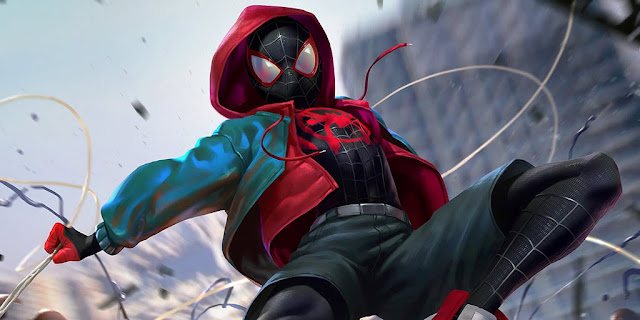“Viper” Heroic Analysis (5 of 100) of Gordon & Young Bruce Wayne from “Gotham”
Spoilers Ahead:
In the episode of Gotham titled “Viper,” the chemical performance enhancing drug colloquially known as Viper makes an appearance – which in turn sets up some familiar potential shadows such as Bane. This episode is the very first to introduce a seemingly supernatural component to the show, and it finally achieves something what other typical cop or detective dramas usually cannot. The supernatural aspect of the episode really makes it stand above every other episode in the series so far, though Robin Taylor's acting in this and in previous episodes still screams to me that it needs more screen time.
Viper, and the distributor of the drug, represents a new shadow for Gordon and for Bruce, and is the main reason the episode works better than the previous ones. So far, Harvey and Gordon have been routine in their cop drama escapades, but Viper shakes things up and does not disappear at the end of the episode like all of the previous “villains” they have combated and killed. Still, Harvey and Gordon follow the usual patterns from previous episodes – buy food from a cart, get a case to solve (against Harvey's wishes), a montage where they search for clues ensues, and they eventually find and confront the foe. However, this all happens rather quickly (or three times depending on one's perspective) and then the show begins to expand on the reason – the Viper. This allows Gordon and Harvey to expand their usual adventure, and creates a higher level tier of a challenge by introducing a drug that makes their opponents super strong, for a limited time only like Batman figures everywhere.
Other shadows also get a very strong, if not decent, treatment in this episode. Fish Mooney and Liza’s development progresses, a little too quickly – but rather that than have it drag on for too many episodes. It is was a littel obvious as to what Fish wanted to do with Liza, but a little build up would have worked in the shows favor. Still, because there are just so many elements the show has to juggle in terms of villainy, it was nice to have a quick development in this area.
Oswald Cobblepot moves deeper into the Maroni family, through what are either dumb choices are very intelligent plays. Maroni gets some character development and it is revealed that he is either smarter than he appears, or too smart for his own good, depending on what the answer is to the Cobblepot dichotomous question. It is disappointing that Maroni does not explain to Penguin what he meant when he said that the name Penguin suits him. And although Falcone as a shadow does not really see much treatment, the tension between him, Maroni and Mooney is enough for the episode. We even get a moment from Selina, who barely even serves as a herald for the episode to pull Gordon closer to the first Viper crime scene.
In regards to Gordon as an actual hero character, this episode is also another turning point. Even though it seems as if it is just another trial to face, a lot happens that allow one to characterize him as a traditional hero. Often times heroes are their own worst enemy. When Gordon lets Cobblepot live, he sets in motion many things which could have been prevented in later episodes, even though he is seemingly doing the heroic thing, or the subjectively right thing. The Arkham struggle might not have been as intensified without Cobblepot throwing swings, and in this episode Gordon might not have been threatened by Maroni. Gordon’s heroic action cause negative consequences that he must later face, and that really helps to make a good hero even better. It’s just damn good, and easy, writing. Think of other famous heroes and why they work: Peter Parker does not kill the store robber and is indirectly responsible for his uncle’s death. Clark Kent isn't honest with Lex Luther and instead indirectly creates one of his primary villains. It happens to the best heroes.
Young Bruce Wayne moves further along in his own heroic journey also. It is nice to see his detective skills so fierce. A real shining moment for the episode is when Alfred saves Bruce from the gas. His reaction was quick and fatherly and it was really nice to see, even though Bruce was being a real tool to him earlier in the episode. Alfred really comes in to his own as a mentor figure and a father figure for Bruce – two archetypal characters who Gordon is yet to have in a real way, and I am hoping that they appear to make his heroic journey fit even better with the monomyth. But Alfred even made a major transition when at the end of the episode he sits down with Bruce to help him investigate the Wayne murder and crime in Gotham. This small moment is one of the best in the show so far.
Familiar ally and guardian characters were missing from the episode. No appearances from Montoya, Allen, or even Barbara. Edward Nygma was in the episode, but no more than usual. Gordon, Harvey, and the captain (an no doubt other cops and detectives) still continue to push him to his breaking point because they fail to respect him for his work and give him the evident credit he deserves.
The episode really shines with the set up for deeper and more intriguing plot to be explored later down the line. Fans know that Viper leads to Venom leads to Bane, but it is neat to have a name for the enemy, WellZyn. Also, the episode strongly hinted that there are members of Wayne enterprise who are corrupt, and if the show lasts long enough it will be very interesting to see young Bruce Wayne as maybe a young adult, still not quite Batman, cleaning up Wayne Enterprises from the inside as he takes over and moves into adulthood.
Edward Nygma explaining something to Harvey.
Edward Nygma as he is interrupted by Harvey and the Captain, who both proceed to talk over him.
Edward, having been cut off, waiting to finish his sentence.
Edward channeling his inner "Office Space" and plotting to "Burn it all down."






Comments
Post a Comment